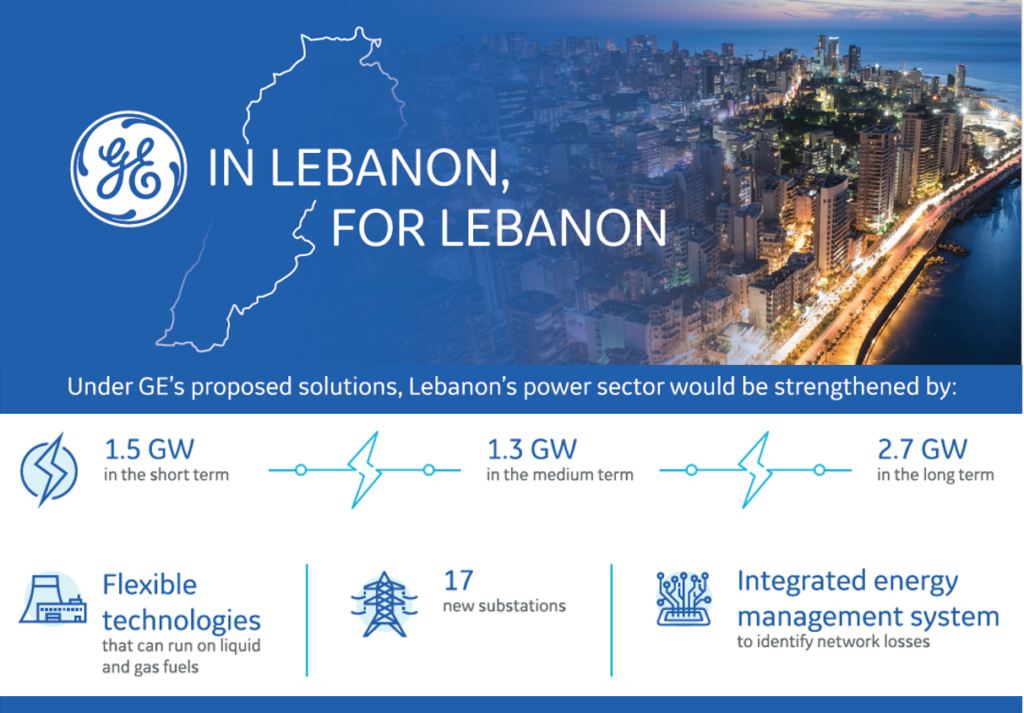Lebanon: How advanced technology can help power the country’s future

Lebanon – a vibrant country with a lively culture, high ambitions for the future – and a strong demand for additional power. Right now, Lebanon has an energy shortfall of 1.5 gigawatts (GW), which will become more critical as the country’s energy consumption continues to rise. It’s estimated that power demand in Lebanon will grow by about 5% each year between now and 2021, and by 3% each year from 2022 through 2030.[1]
Compounding the energy shortage situation is an outdated energy grid that is unable to handle current—much less future—energy transmission needs. The result is frequent blackouts across the country, which residents and businesses alike have to address with private generators—a costly and unsustainable option.
Lebanon’s energy roadmap
In response to the country’s increasing energy needs, Lebanon’s Ministry of Energy and Water developed an extensive plan to improve and modernize Lebanon’s power infrastructure that addresses the entire energy chain, from generation to transmission and distribution to consumption.
This plan requires advanced technology, deep industry expertise, and solid financing models to be successful. In support of this plan, GE (General Electric) presented a comprehensive roadmap in November 2018 at the seminar “Powering Lebanon Forward” held in Beirut under the patronage of the Ministry of Energy and Water.
The right energy mix at the right time
The energy roadmap illustrates how a tailored mix of reliable, flexible, efficient and cost-effective energy technologies can help address Lebanon’s energy shortage in the near-term and provide ongoing power for the future.
Under this comprehensive plan, and in partnership with the Minister of Energy and Water and other stakeholders, GE proposes to:
- In the short-term: Add up to 1.5 GW—enough to close the country’s current energy gap—through fast-track gas power technology, simple-cycle power plants that can run on heavy fuel oil, light diesel oil and natural gas, and wind power plants that can generate clean energy.
- In the medium-term: Increase power generation capacity by up to an additional 1.3 GW through new combined-cycle power plants, the conversion of simple-cycle power plants to combined-cycle (so that more power can be generated from the same amount of fuel), and new wind power farms.
- In the long-term: Bring online up to another 2.7 GW to meet the country’s energy needs through new combined-cycle power plants and renewable energy facilities.
This additional amount of power needs to be manageable by the grid so that it can be transmitted and distributed while keeping the network stable. For that reason, the roadmap also includes solutions to strengthen the grid by upgrading up to 6 existing substations and developing up to 17 new substations. Moreover, the roadmap also plans to implement an Integrated Energy Management system that tracks generation, transmission and distribution to allow the Ministry to identify losses in the network.

GE’s roadmap for Lebanon is a custom-tailored plan that not only addresses the country’s current needs but includes the buildout of Lebanon’s infrastructure to allow future adoption of new technologies and fuels.
“In developing our proposed roadmap for Lebanon, GE considered the most effective mix of machinery, technologies and timing, based on the grid size and the fuel availability in the region, now and in the future”, says Joe Anis, President & CEO of GE’s Gas Power business. “For example, GE’s suggested mix of technologies includes the implementation of our highly efficient 9E gas turbines. These units are a perfect fit for Lebanon, as they can burn heavy fuel oil—currently used in the country—as well as tri-fuel configurations when natural gas becomes available in the future.”
GE commissioned its first gas turbines in Lebanon more than 30 years ago, and the company is now looking to help build the foundation by strengthening the country’s power infrastructure with technologies that will support Lebanon’s current and future energy needs. “History has brought GE and Lebanon together, and together we can build a future that is even brighter”, concludes Joe Anis.